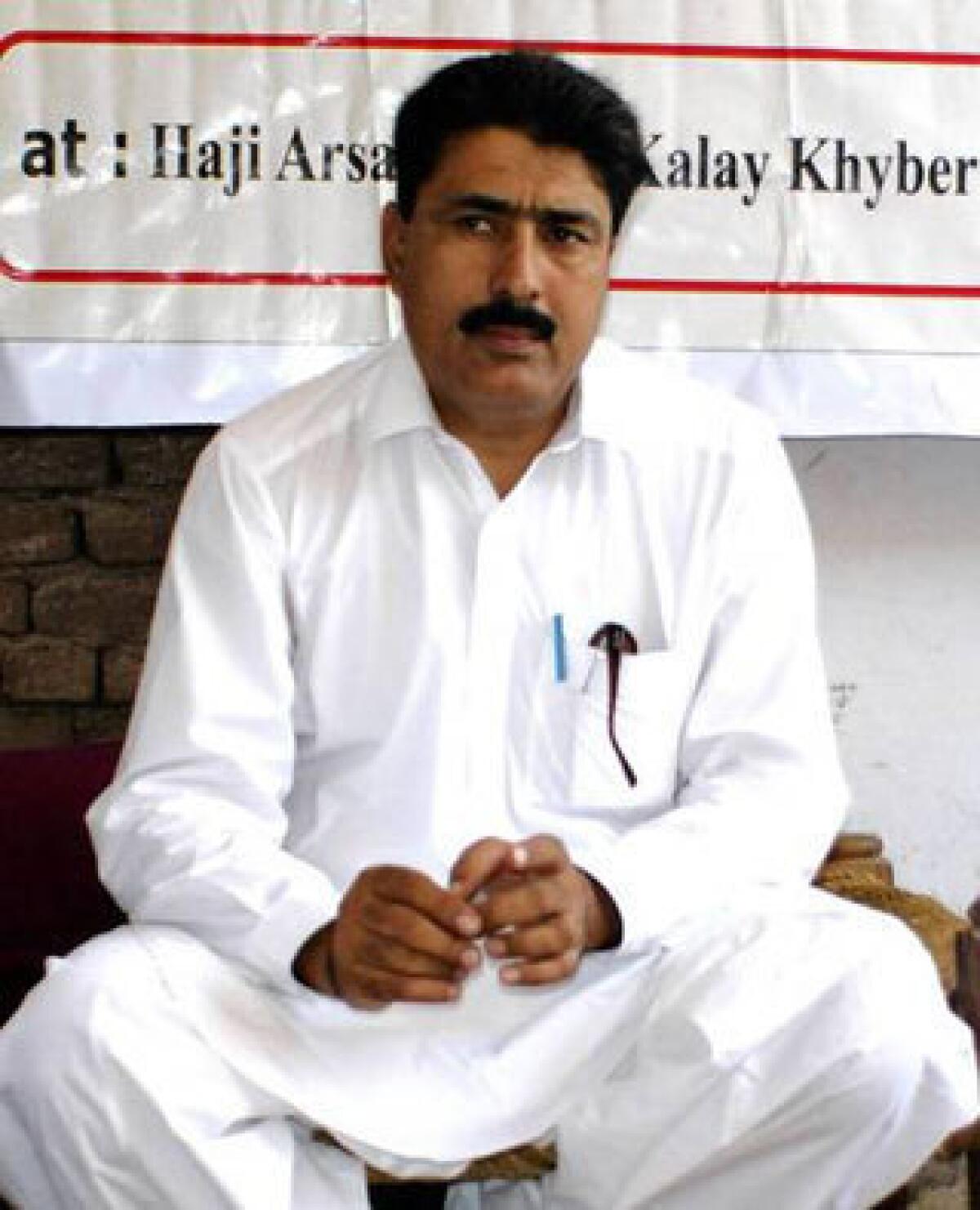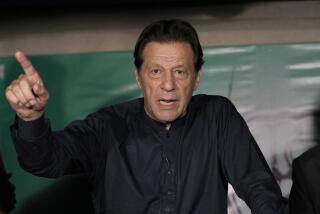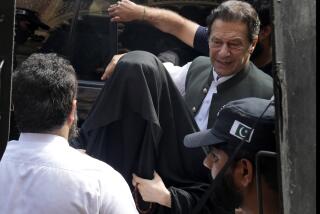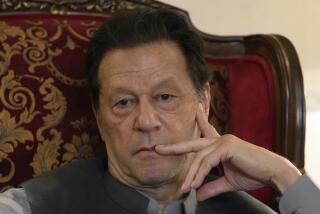Pakistan overturns sentence of doctor linked to Bin Laden raid

- Share via
PESHAWAR, Pakistan — A Pakistani appeals court on Thursday overturned the 33-year jail sentence of Shakeel Afridi, a doctor widely credited with helping the CIA track down Al Qaeda leader Osama bin Laden, who was killed by U.S. Navy SEALs in 2011.
Afridi remains in the central jail in Peshawar, where the appeal was heard, while awaiting a new trial.
U.S. officials consider Afridi a hero for his assistance, and his arrest and harsh sentence for allegedly helping militants further strained ties between Washington and Islamabad already damaged by the Bin Laden raid. Last year, then-Secretary of State Hillary Rodham Clinton denounced Afridi’s treatment as “unjust and unwarranted,” and angry members of Congress withheld $33 million in aid — $1 million for each year of Afridi’s prison term.
Afridi ran a fake hepatitis vaccination campaign, collecting DNA samples that reportedly helped the U.S. intelligence agency conclude that Bin Laden was in the Abbottabad compound.
Pakistani officials originally said Afridi would face treason charges. But in May 2012, he was charged by a court in Pakistan’s semiautonomous Khyber tribal area with “conspiring against the state” by giving money and medical help to a banned militant group, Lashkar-e-Islam. Tribal areas are not governed by the country’s judicial system but a separate set of British-era laws, in consultation with tribal elders.
Afridi has denied the charges, and his lawyers have argued that he was actually kidnapped by the group and forced to pay a ransom.
The earlier court’s decision was set aside Thursday when Judge Sahibzada Mohammad Anees ruled that the de facto judge in the case — a political agent in the tribal area representing the government — exceeded his authority, according to Afridi’s lawyer, Samiullah Afridi. The retrial will be held under the same tribal laws but overseen by a different official.
Samiullah Afridi — it was not clear whether he is related to the doctor — said he argued that the first judge in the case was not authorized to pass such a long sentence, that a proper trial was never held and his client didn’t have an opportunity to defend himself.
Washington has been pressuring Pakistan to release Shakeel Afridi. His lawyer said he didn’t think the United States exerted any influence in Thursday’s decision. He said his client is in danger.
“We fear if Dr. Afridi’s security is eased, he won’t be alive tomorrow,” he said. “We want him shifted to some secure facility. Even as his lawyer, I am not safe.”
Pakistani officials were furious over the Bin Laden raid, which critics said made the nation’s powerful military look either complicit or incompetent after the Al Qaeda leader was found a short distance from a top military academy.
Many Pakistanis see Shakeel Afridi as a traitor who collaborated with an overseas intelligence agency to carry out an illegal operation. The case has also increased militant threats and killings of health workers and polio vaccination teams amid suspicion that they are CIA spies.
Special correspondent Ali reported from Peshawar and Times staff writer Magnier from Kabul, Afghanistan. Special correspondent Nasir Khan in Islamabad contributed to this report.
More to Read
Sign up for Essential California
The most important California stories and recommendations in your inbox every morning.
You may occasionally receive promotional content from the Los Angeles Times.










